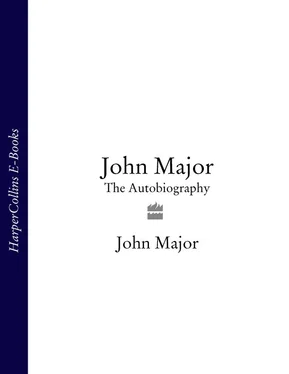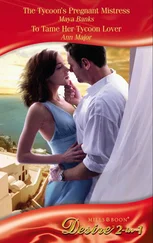We canvassed, enrolled new members, helped in political campaigns, held dances and tennis mornings, went on outings, published our own magazine, heckled local Labour MPs and thoroughly enjoyed ourselves. An elderly association member was scandalised when she found one of our members straining printers’ ink through her stockings. Girls took off their stockings for one reason only, she thought. She was right: we needed the ink strained.
Meanwhile, in early 1960 Terry married his girlfriend Shirley – a marriage still going strong thirty-nine years later – and moved a few miles south to Thornton Heath; but we continued to work together. My mother’s health was still poor, but she battled on. The YCs were wonderful to her. She loved them all, especially Derek Stone and Clive Jones, later to be my best man, and made our house an open house.
But my father’s body was wearing out and he rarely left his bed, though his mind was clear and active to the very end. He died at home in bed at Burton Road, early in the morning of 27 March 1962. I was eighteen and he was eighty-three, and the bond between youth and age was very strong. He went as the sun rose. I was with him when he died. We knew he was dying and the family had been sitting up, in rota, overnight. I was sitting by his bed holding his hand. It was very peaceful. He was drowsy, half asleep and, I think, his mind had gone on ahead of his body. I did not know the exact moment he died. He was breathing so shallowly I wasn’t sure. I felt the warmth leave his hand. For a man of the theatre, who loved the dramatic, it was a peaceful end. There was no collapse. No last words.
My father, the man who had given me life and love, was dead.
There were family tears and comforting words for my mother, who sat there with her cheeks wet, reliving a lifetime of memories. When I held her she clung on to me as though she would never let go. Then the dreadful rituals began. The doctor came to sign the death certificate. The vicar, J. Franklin Cheyne, a lovely old boy who had interviewed Dad for the parish magazine as ‘one of the characters of the parish’ only days earlier, came to offer solace. Neighbours came and went, the kettle boiled, tea was offered and the surreal atmosphere that follows death settled on the house.
I went for a walk, and to this day I do not know where I went. Life would not be the same, but there was much to do.
I found it hard to come to terms with the finality of death. Dad’s death was the first time in my life that something had happened which I didn’t believe I could put right in the future. It made a reality of what he had often said to me: make of life what you can, and take your chances, because they may never come again.
So far, I had not made much of my life. School – a failure; career – I had none; sport – not good enough; politics – I was only playing at it. I needed a career and qualifications.
I began studying more ‘O’ levels by correspondence course, and left my brother and Commander David to seek out something more promising to do. No sooner had I done so than Mother fell quite ill and, as Terry and Pat were earning more than I would be able to, it was economically sensible for me to be the one to stay at home and care for her.
This I did, but when she was well enough to be left, I found I couldn’t get a job. I was unemployed – unemployable, I feared – from July to December 1963. Years later, when I was prime minister, some Labour Members of Parliament mistakenly claimed that I had never been unemployed. I think it was the Daily Mail which found corroborative evidence to prove that in fact I had. I was young and single, and had a brother and sister who were both in work, but I did get a glimpse of what it must be like as an adult with family responsibilities, unable to find a job. The Labour Party’s intention was to suggest that Conservatives had no experience of unemployment, and didn’t care about the unemployed. I should have taken more note of their tactics; Labour were to do this kind of thing again later, on a much wider front.
I found my situation degrading. I had ambition, but no prospects. I applied for jobs, signed on at the employment exchange, collected the dole, but could find nothing worthwhile. I was willing to lower my sights until I’d passed more examinations, but even that failed: I was turned down as a bus conductor because I was too tall. Eventually, just before Christmas 1963, I gratefully accepted a job offer from the London Electricity Board, and went to work at their offices at the Elephant and Castle.
It was a cheerful, happy place, with a cosmopolitan staff, but the routine was mind-numbing, and I was only to remain there for eighteen months. I asked if I could work four days a week and study on the fifth (with an appropriate pay reduction), but this was refused. The LEB did not provide me with a career, but it was an important staging post in building up my self-belief that I could do better.
Politics continued to fascinate me, and in the spring of 1964, when I had just turned twenty-one, I contested my first election for Lambeth Council. Larkhall was a hopeless ward for the Conservatives, but I fought it as if it were a marginal, canvassing for support at every spare moment. I lost heavily – they might as well have counted my votes and weighed the Labour votes – but the experience whetted my appetite. The count at Lambeth Town Hall was hugely exciting, crammed with joyful people in red rosettes and resigned good losers in blue. Labour seemed impregnable in Lambeth in 1964, but that was soon to change. Not, however, at the general election in October that year, when Harold Wilson narrowly defeated Sir Alec Douglas-Home and Labour squeaked back into government after thirteen years in opposition. In Brixton, Marcus Lipton, the sitting Labour Member, comfortably saw off Ken Payne, the Conservative candidate. I worked hard for Ken, who warmly encouraged my own ambitions and offered to help me find a better job, but the result was never in doubt. Ken would have made a good Member of Parliament, but sadly he was never to get there, and comforted himself with a distinguished career in local government.
After my own diversion into local elections, I thought long and hard about my future. Politics beckoned more each day, but I knew that if I were to have a good chance of being selected as a Conservative candidate for Parliament, I had to obtain a professional qualification as well as a political profile. The profile was coming along quite nicely, but the career not at all. I could not now go to university, since I had no entry qualifications and no means of support even if I got there. I could not become articled to the law or chartered accountancy, since neither would provide any income for years.
It was going to have to be evening classes – which would wreck political activities – or a correspondence course which would wreck my sleep. That choice was easy. I could not give up politics. But what to study? Accountancy? Possibly. Insurance? No. Banking? Yes. I settled for banking, because it offered more choices of employment, the chance of travel, promotion (I hoped) on merit, and I could study at home.
I joined District Bank in May 1965, at the magnificent salary of £790 a year. I began studying immediately, rising each morning at 4.30 or 5 a.m., when the mind is uncluttered and the brain fresh. To this day I follow that pattern if I have something taxing to get through. For the first time in my life I enjoyed the process of learning, and I widened my reading as well. I studied in the morning, worked at the bank by day, enjoyed my politics in the evening, and read late into the night. Within sixteen months I comfortably passed the five papers of Part One of the Banking Diploma. It was tremendously exhilarating to feel I was getting somewhere.
Читать дальше












